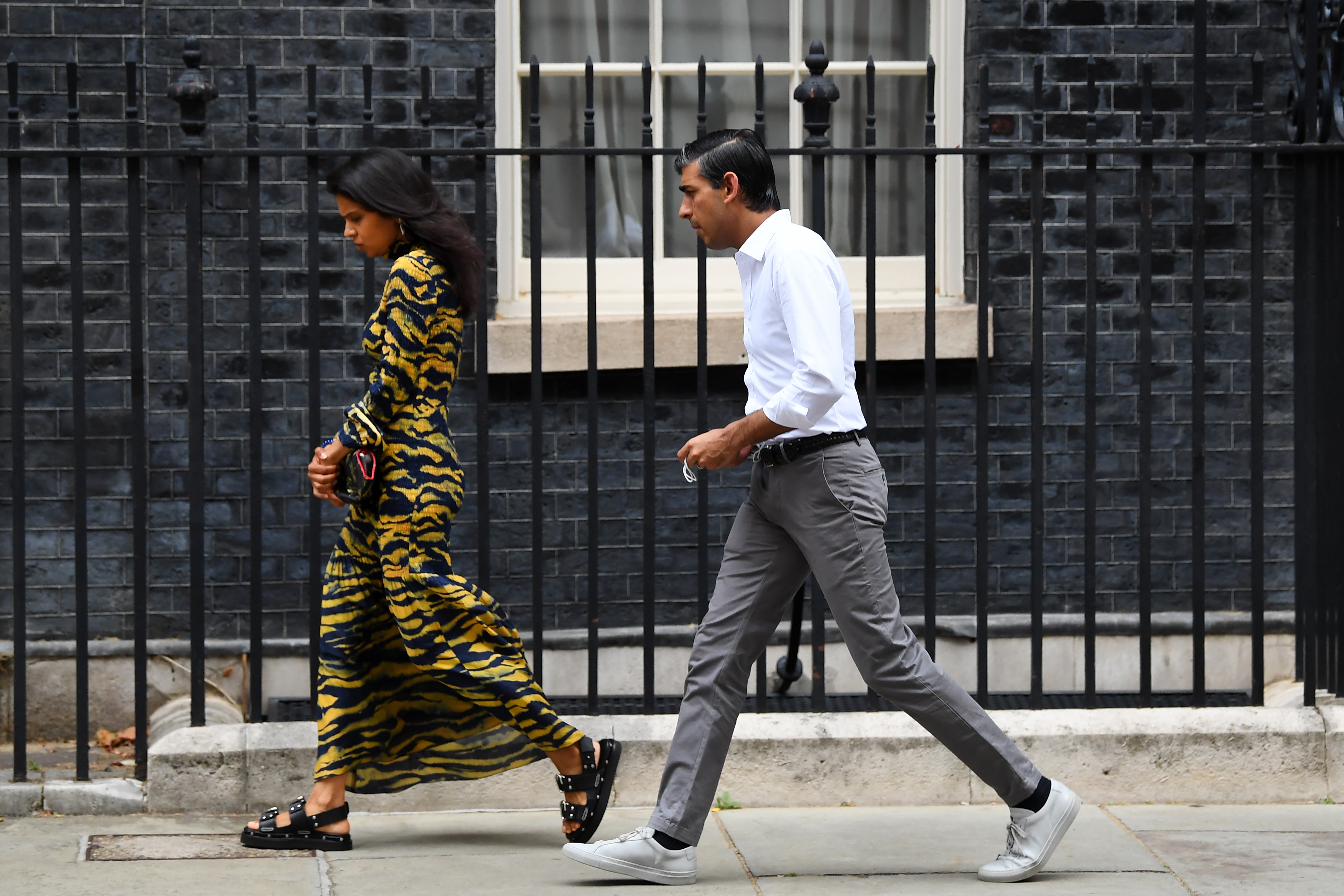The chancellor’s leak inquiry is yet another tone-deaf mistake
Editorial: The chancellor’s leak inquiry will either run into the sand, as they tend to, or produce further embarrassment and give the story fresh legs

Leaving aside the merits of the case, Rishi Sunak’s leak inquiry looks like yet another of his many public relations disasters.
For a man who aspires to the highest offices of the land, he has a curiously tone-deaf attitude towards what the general public think is acceptable – such as his new wave of austerity policies – and believable, such as the brief pretence that a Kia Rio serves as the Sunaks’ family transport.
In the first place, all of the information about his personal tax affairs, and those of his close family members, should have been placed in the public domain under the spirit of the ministerial code. It is one of the prices that politicians, and indeed their families, have to pay to enjoy the confidence of the taxpayers who pay their wages and obey their laws. The code requires all sources of potential and perceived conflicts of interest to be disclosed to the civil service and, by implication, placed in the public domain through the published list of ministerial interests. The offshore family trusts, Akshata Murty’s approximately £600m worth of shares in Infosys, her “non-dom” status, and Mr Sunak’s US green card should have all been disclosed, one way or another, in the public interest. They were not, thus also breaching the Nolan principle of openness in public life.
The very fact that Ms Murty has had to volunteer to pay UK income tax, and that the chancellor dropped his green card, suggests at least the perception of a conflict of interest. Each of these aspects of private life would normally be kept private – but there is a clear problem with the man responsible for framing tax policy having various complications in his own family’s financial management that the public have a clear right to know about.
Mr Sunak should be very careful what he wishes for. Usually, unless there are matters of national security at stake, such as was the case with Gavin Williamson a few years ago, they aren’t worth the amount of civil service time devoted to them. A proper inquiry would require a great number of officials having their personal emails and phone records trawled, which represents a real invasion of privacy – and a disproportionate one, given that the public had a right to know in any case. Should we bring the whole weight of the British criminal justice system down on their heads for revealing that the chancellor’s wife is a non-dom – something that could easily be guessed at anyway, given her vast wealth and Indian citizenship?
To keep up to speed with all the latest opinions and comment, sign up to our free weekly Voices Dispatches newsletter by clicking here
If a leak inquiry and prosecutions followed every stray piece of gossip that passed around Westminster, nothing would ever get done. This is, after all, a government – including the Treasury – that offers to announce policies through friendly media channels rather than present them to the House of Commons. Leaking is a way of life in Whitehall, and always has been, and the tax arrangements of Treasury ministers and their families are not meant to be private matters. The public interest is apparent and enshrined in the ministerial code and Nolan principles.
The chancellor’s leak inquiry will either run into the sand, as they tend to, or produce fresh embarrassment and give the story fresh legs. The best route was always maximum transparency, so that his critics wouldn’t have cause to cast aspersions and the public would be given the full picture of his potential conflicts of interest.
For whatever reason, the public were not told what they needed to be told, and that was, and is, wrong. Mr Sunak is not yet finished, and there is much he could do to restore the high reputation he earned during the pandemic with his furlough scheme. A mole hunt is a needless distraction, at best.



Join our commenting forum
Join thought-provoking conversations, follow other Independent readers and see their replies
Comments